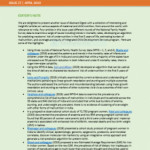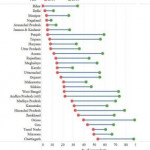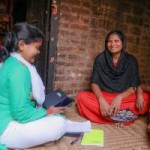The International Food Policy Research Institute (IFPRI), NITI Aayog, and the International Institute for Population Science (IIPS) have established a Source: POSHAN: Partnerships and Opportunities to Strengthen and Harmonize Actions for Nutrition in India
Abstract Digest on Maternal and Child Nutrition Research – Issue 27
We are delighted to present another issue of Abstract Digest with a collection of interesting and insightful articles on various aspects of maternal and child nutrition, from around the world, with relevance to India. Four articles in this issue have used different rounds of the National Family Health Survey data to examine a range of >> Read more Source: POSHAN: Partnerships and Opportunities to Strengthen and Harmonize Actions for Nutrition in India
Abstract Digest on Maternal and Child Nutrition Research – Issue 27
We are delighted to present another issue of Abstract Digest with a collection of interesting and insightful articles on various aspects of maternal and child nutrition, from around the world, with relevance to India. Four articles in this issue have u... Source: POSHAN: Partnerships and Opportunities to Strengthen and Harmonize Actions for Nutrition in India
Insights from a recent study on coverage and equity of India’s flagship program to tackle undernutrition
An IFPRI study on the equity and extent of coverage of India’s Integrated Child Development Services (ICDS) programme was recently published in the Bulletin of the World Health Organization. The study has revealed that expansion and utilization of this government-run community-based nutrition program increased significantly between 2006 and 2016, especially among historically disadvantaged castes and >> Read more Source: POSHAN: Partnerships and Opportunities to Strengthen and Harmonize Actions for Nutrition in India
India’s child nutrition program shows strides in utilization, but fewer gains in high malnutrition states
Expansion and utilization of one of India’s largest government-run community-based nutrition programs increased significantly between 2006 and 2016, especially among historically disadvantaged castes and tribes. But, women with low education and the poorest households are relatively more excluded from accessing program benefits. Among states too, while overall utilization has improved, high malnutrition states are relatively >> Read more Source: POSHAN: Partnerships and Opportunities to Strengthen and Harmonize Actions for Nutrition in India



